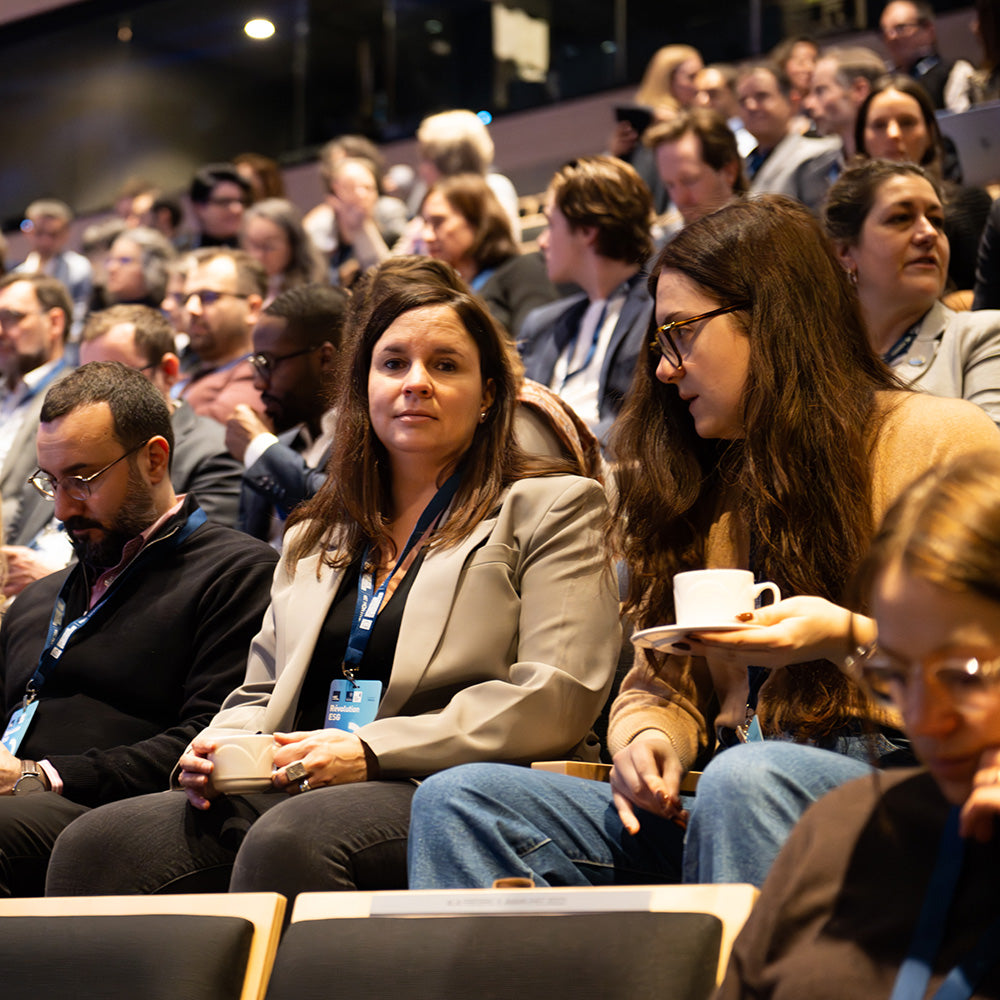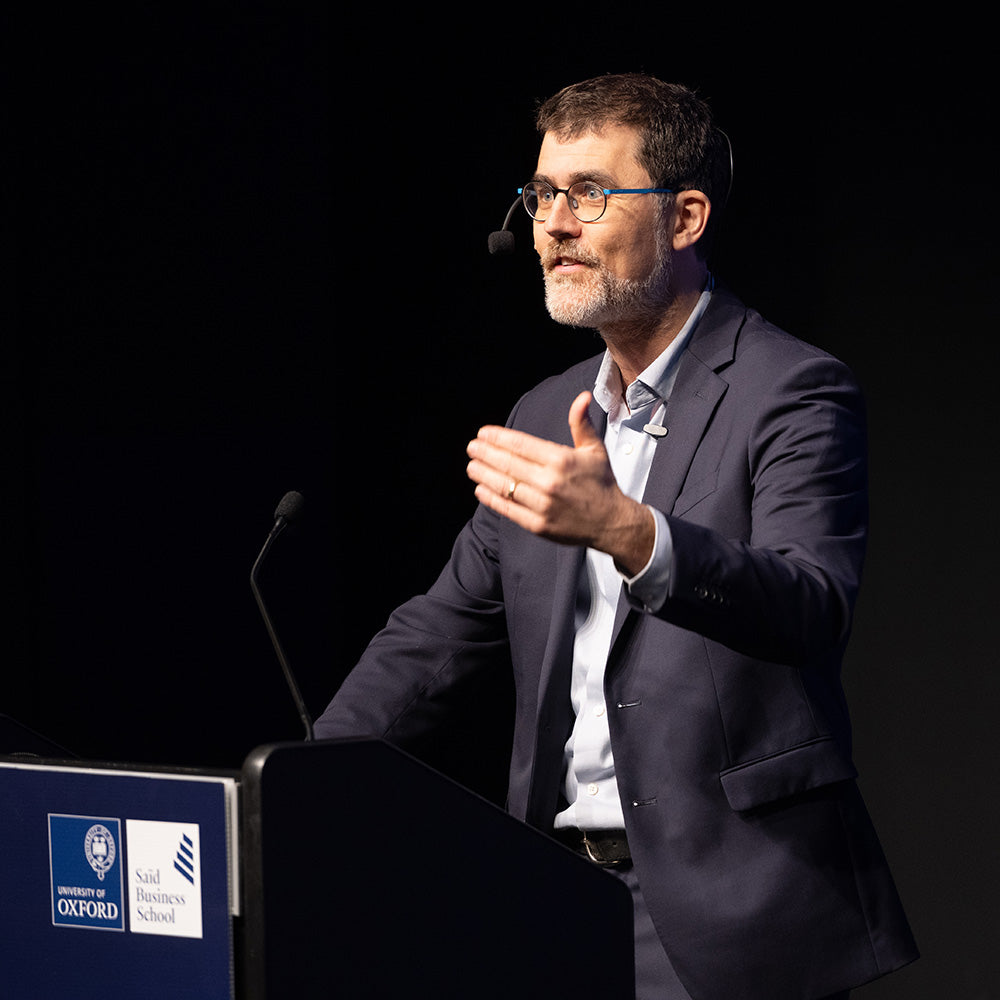A Sustainable Future: the Evolution of ESG Practices to Reduce Carbon Emissions

March 04, 2024
From the role of publicly traded companies to private sector investment, the transition to a low-carbon economy is one of the greatest challenges of our times. For businesses, this transition depends on implementing an ESG initiative, i.e., adopting environmental, social and governance criteria.
Here is a look back at a half-day of discussions on the topic with Canadian and British experts brought together by HEC Montréal and University of Oxford on February 14, 2024, an event made possible by our sponsors, KPMG and the Michael D. Penner Institute on ESG.
The Climate Transition: A Challenge to Tackle Methodically
According to arecent KPMG study, 83% of Quebec businesses report wanting to make sustainability a priority, but most managers — 77% of them — say they “have no idea where to start.” This is what Benoit Lacoste Bienvenue, Regional Managing Partner, Quebec Region, at KPMG in Canada, pointed out right off the bat. “The key lies in environmental efforts, but perhaps also, and more importantly, in how serious we are about measuring results,” he said. “Because what gets measured gets managed, as the famous Peter Drucker maxim goes.” Integrating ESG criteria in the decision-making process depends in part on a measurement system, which drives people toward action and improvement.
How Quebec is Contributing to Global Decarbonation
Thanks to the vision of our predecessors who invested in hydroelectric resources, Quebec is well positioned globally in clean energy. But we need to make rapid progress, because many countries are already taking action and investing, said Michael Sabia, President and CEO of Hydro-Québec. Clean energy has become decisive for global competitiveness.
“Decarbonation and economic prosperity go hand in hand,” said Sabia. “It’s the key to success.” But we need to be sure that the benefits of the energy transition and the accompanying economic growth are shared equitably. He pointed to the need to create a spirit of partnership with Indigenous communities to achieve economic reconciliation with First Nations and Inuit.
In Quebec, public corporations, such as Hydro-Québec, play a critical role in supplying clean energy at rates that are among the most competitive in the world, as well as by acting as intermediaries between the government and the private sector. In addition to seeing market trends, they enjoy a level of public trust, Sabia believes. “This dynamic is the reason Quebec can be a global leader,” he said.



Integrating ESG Factors in Businesses
The term “ESG” is increasingly being called into question. Many prefer the concept of sustainability, which is more holistic in nature and carries more scientific weight. The successful integration of ESG factors is nevertheless something that matters to today’s businesses. This is the case even though the correlation between sustainability and financial performance can be difficult to measure.
According to panelists Juliane Reinecke (Oxford), Sonia Hernandez (KPMG), Jingdong Hua (International Sustainability Standards Board) and Charles-Antoine St-Jean (Canadian Sustainability Standards Board), managers should look at ESG as a tool for risk management and corporate strategy, rather than as a distinct environmental responsibility metric. ESG criteria are a way to encourage informed, responsible investment decision-making.
The challenge? Time! Juliane Reinecke, Professor of Management Studies at University of Oxford’s Saïd Business School, pointed out that the climate crisis requires commitments to carbon neutrality over a long period, up to 2050, which can be hard to imagine, because “these long-term objectives often exceed the usual timeframe for strategic decisions and investments.”



Sustainable Finance and the Disclosure of ESG Information
For ESG practices to be effective, it is essential to provide the most instructive ESG information possible to respond to current challenges in sustainable investment decisions. This was the message delivered jointly by Amir Amel-Zadeh, Associate Professor of Accounting at the University of Oxford’s Saïd Business School, and Marc-André Blanchard, Executive Vice-President and Head of CDPQ Global and Global Head of Sustainability.
They believe it is a significant challenge, because businesses often operate in silos, while information about sustainability is and must be interdisciplinary, coming from various stakeholders within an organization and measured differently than traditional financial indicators. These systems need to be reviewed. Governance that breaks down these silos is crucial to gather information and ensure its reliability.
Reducing the Environmental Impact of Businesses
In Quebec, overall emissions are dropping. “But certain sectors, particularly agriculture and transportation, have seen rising emissions despite technological progress,” said Pierre-Olivier Pineau, Professor and Chair in Energy Sector Management at HEC Montréal. “It is time for bold action; we can’t ‘wait and see’ any longer. Transportation is one of the industries that has not sufficiently embraced the technologies that would help it reduce emissions.”
He pointed in particular to the need for companies to understand their own emissions and take proactive measures to reduce them, particularly with respect to electricity consumption, which remains far beyond needs. “A reduction in emissions can be achieved through energy efficiency, renewable energy and, above all, the development of new approaches and the overhaul of existing systems.”
What are some of the companies that are leading the charge? LOOP and Communauto are two role models that have embraced the concept of resource productivity, specifically by upcycling rejected food and promoting car sharing. These are promising solutions to make the most of material resources.



Decarbonizing the Economy: Achievable or Idealistic?
With ambitious policies and massive investments in clean solutions, the dream can come true. This is the argument of Catherine McKenna, Founder and Principal, Climate and Nature Solutions, and former federal minister of environment and climate change.
In her expert opinion, as someone who helped define the parameters of net-zero emissions at the UN, it is essential to commit to achieving this goal through real, measurable efforts. “Businesses must set targets based on science and on immediate action, rather than distant, unambitious objectives.”
The good news lies in the commitment of younger generations, who are paying increasing attention to the environmental performance of businesses and are leading us in the right direction.
Learn more about our upcoming events
Explore all courses


